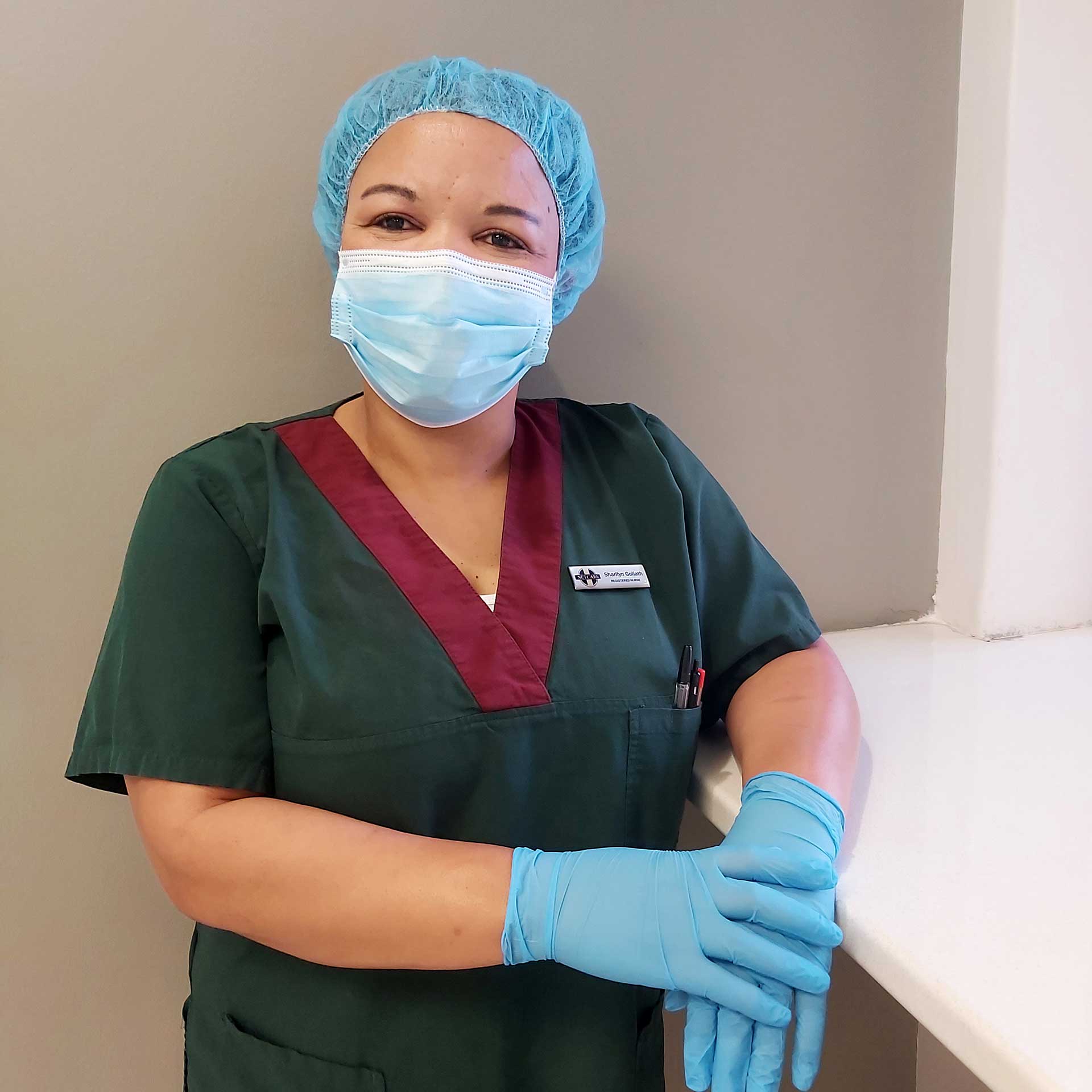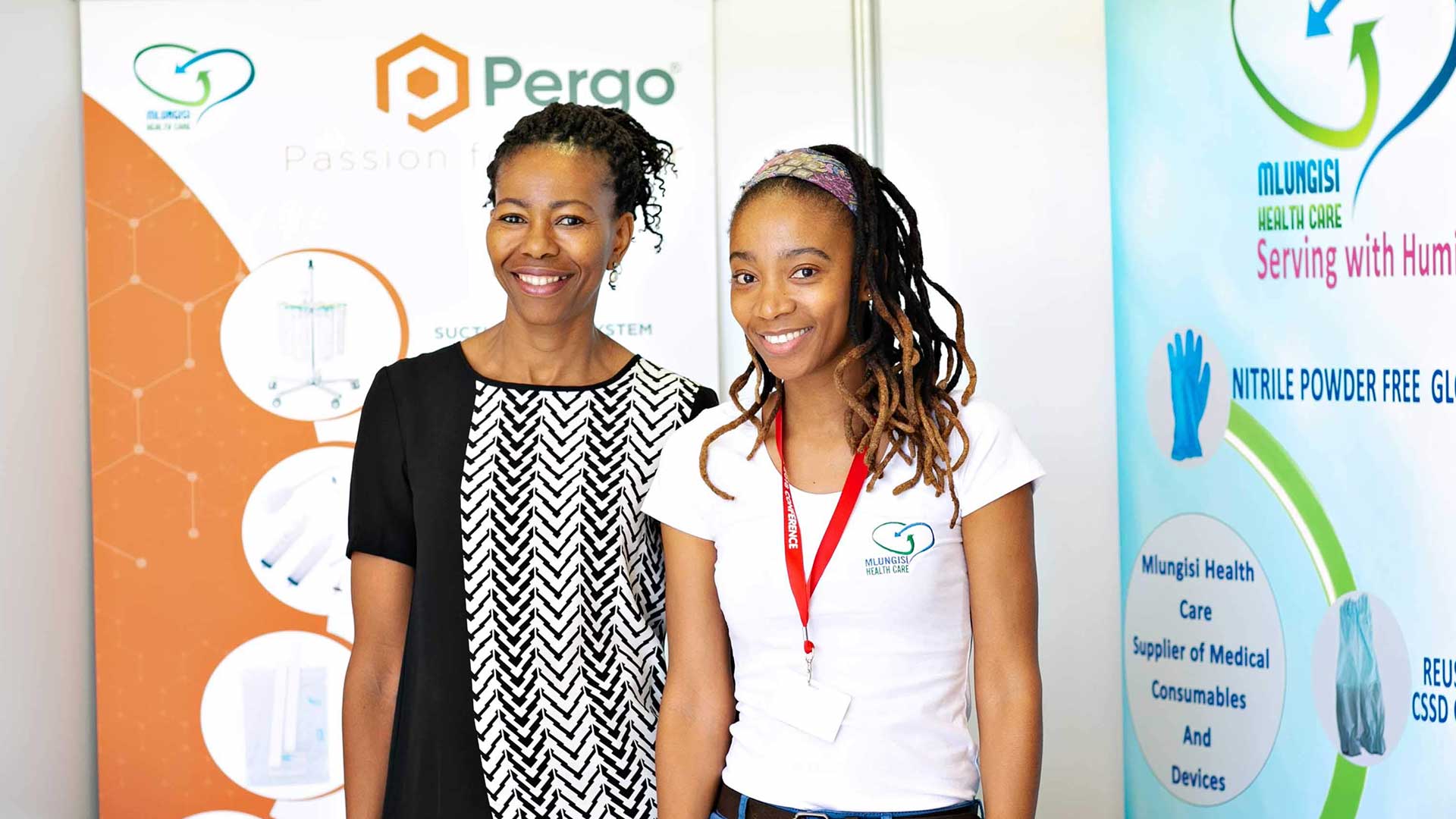Breakthrough for African stroke care
Lisa Hawksworth, unit manager, Netcare Linksfield Hospital emergency department (left) and Zasskia Wiese, Netcare trauma programme manager and national stroke coordinator (right).
Two South African hospitals achieve groundbreaking WSO accreditation
In a breakthrough for African healthcare, Netcare Garden City Hospital in Johannesburg and Netcare Blaauwberg Hospital in Cape Town have become the first healthcare facilities in southern Africa, and among the first on the African continent, to receive World Stroke Organization (WSO) certification.
This milestone comes during National Stroke Week (28 October to 3 November), when the devastating impact of stroke comes into sharp focus: 75 000 South Africans experience strokes annually, with 25 000 proving fatal. The survivors face a collective 95 000 years lived with disability.
“Becoming one of the first African countries with WSO-certified stroke centres is monumental for South Africa,” comments Zasskia Wiese, Netcare trauma programme manager and national stroke coordinator. “As of October 2025, only 34 hospitals from 17 countries have either achieved full certification or are actively pursuing it.”
The significance becomes clear when considering that sub-Saharan Africa records the world’s highest stroke incidence at 316 per 100 000 people. In South Africa, where rural areas carry at least half the stroke burden, the need for world-class treatment has never been more urgent.
“During a stroke, the brain loses 1.9 million neurons every minute. That is why rapid, evidence-based treatment protocols – the hallmark of WSO certification – have a direct impact on whether patients survive and regain their independence,” notes Wiese.
What the WSO certification means for patients
The WSO-certification programme establishes rigorous, evidence-based standards that have been proven to reduce mortality and disability rates globally. To achieve certification, hospitals must demonstrate:
- Rapid assessment protocols that ensure patients receive treatment within a critical window of time
- Specialised stroke teams trained to international standards
- Advanced imaging capabilities and treatment options
- Comprehensive rehabilitation services
- Continuous quality monitoring and improvement systems

Zasskia Wiese, Netcare trauma programme manager and national stroke coordinator (left), photographed here with Wendy Zimkhitha Mandindi, Angels initiative consultant for Gauteng South, North West and Botswana (right).
"WSO-certified centres achieve dramatically better outcomes through meeting crucial time targets for clot-busting medication. When someone arrives at our emergency department with stroke symptoms, every second counts," explains Wiese.
For patients at Netcare Blaauwberg and Netcare Garden City hospitals, these standards translate into tangible benefits: faster treatment times, access to the latest therapies, and teams equipped with protocols proven effective worldwide.
Building on a foundation of excellence
“This achievement represents years of systematic improvement in stroke care at Netcare. Netcare hospitals and Netcare 911 have been awarded more than 100 WSO Angels Awards since 2023,” notes
Dr Erich Bock, managing director of Netcare’s Hospital Division.
“The WSO Certification differs from these awards in that it evaluates the entire stroke care system. It is not just a badge of recognition; it is a continuous quality improvement framework that transforms hospital systems and measurably reduces the stroke burden.
“The certification process examines every aspect of stroke care, from emergency response times to long-term rehabilitation outcomes. This comprehensive approach ensures that certified centres maintain excellence across the entire patient journey,” he adds.
A catalyst for continental change
The implications extend far beyond these two hospitals. As models for other African healthcare facilities, they demonstrate that world-class stroke care is not limited by geography.
“This creates opportunities for international collaboration and knowledge exchange. The economic argument is equally compelling. With stroke-related disability creating massive financial burdens on families and healthcare systems, improved treatment standards could significantly reduce these costs while preserving patients’ independence and quality of life,” says Dr Bock.
The path forward
The certification positions South Africa alongside developed nations in stroke treatment capabilities. While countries like the United States, Germany, and Japan have numerous certified centres, Africa is just beginning this journey.
"This achievement reflects the tireless dedication of our entire team," says Dr Bock. "From Mande Toubkin, Netcare's general manager of emergency, trauma, transplant and corporate social investment, to Zasskia Wiese, who spearheaded the certification process, to every healthcare professional and staff member who embraced these rigorous standards – they've all proven that African hospitals can compete on the world stage. The question isn't whether we can achieve global excellence anymore. It's how quickly others will follow our lead."
According to Wiese, plans are already well underway to expand the programme. “Netcare aims to have many more hospitals certified within the next year, while we are hoping to share best practices with public sector facilities to improve stroke care nationwide. We are also working to launch the Fast Heroes programme in schools across the country. ”
“For the 205 South Africans who will suffer strokes today, and every day, these two hospitals represent hope. They prove that receiving stroke treatment in Africa doesn’t mean accepting second-best outcomes.
“As stroke care transforms across the continent, one thing is clear: Netcare Garden City and Netcare Blaauwberg hospitals haven’t just achieved a certification – they’ve lit a path that could save thousands of lives across Africa,” concludes Dr Bock.
About WSO certification
The World Stroke Organization's Stroke Centre Certification program helps hospitals worldwide implement evidence-based practices that improve patient outcomes. Participating centres report average reductions in mortality of 20-30% and significant improvements in functional recovery rates.













